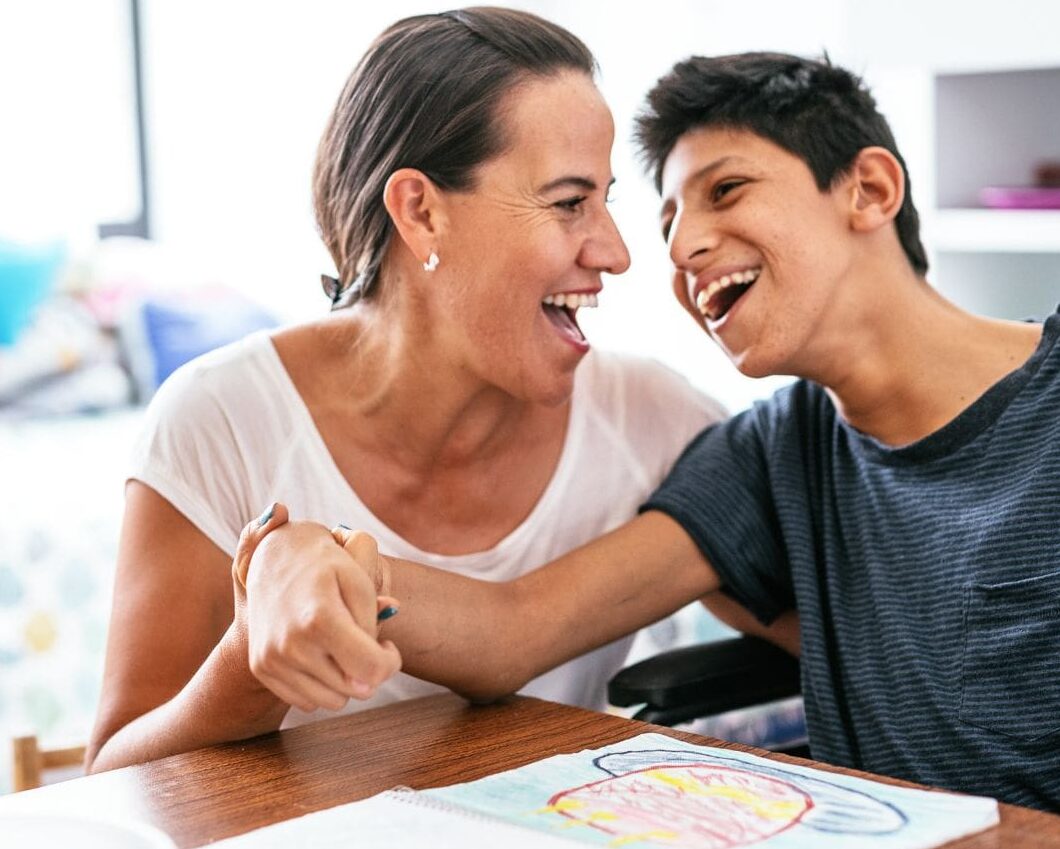K'S STORY

Continuity of care and communication are essential when supporting children with a learning disability and complex health needs
K is an adolescent boy who will soon transition to adulthood. He has received night time care at home from HFH for over 2 years. K has a rare genetic condition resulting from a Y chromosome mutation. This resulted in a developmental delay, learning disabilities and disorders of movement including fine motor difficulties, hypermobility, and tremors. He has swallowing difficulties and a disrupted sleep pattern. More recently K has also been diagnosed with epilepsy.
K’s health needs include seizure monitoring, medication administration, personal care, monitoring of his skin integrity and assistance to eat and drink modified consistency food and fluids.
Due to his condition K needs support and help with his night-time anxiety requiring emotional support. His regular carers monitor K during the night, enabling mum to rest and from their feedback, plan the day ahead.
K was very dependent on mum for most things and initially showed some behaviours that were challenging to manage. He had a lot of night-time anxieties meaning that mum was unable to get a break. The strain on mum was compounded by her own health needs, meaning supporting him was extremely hard. Our Children and Young People/ Learning Disabilities Nurse Case Managers worked in partnership with K’s family and service commissioners to structure a package of care to help to support K. To do this, it was crucial that the carers could communicate effectively and build a trust-based relationship with K, to enable mum to rest.
All agreed on the importance of a consistent ‘core’ team of clinically competent care staff. This original team are still in place and K has benefited from the continuity of their care for 2 years and has become very comfortable with those looking after him. K’s progression in trust has been demonstrated by him going to the team for assistance at night instead of mum. Also, he now feels comfortable asking his care team to support him to shave, which was originally a task he would only allow mum to carry out.
A positive behavioural support plan was implemented which helped settle challenges with K’s behaviour. The root of this behaviour was due to K not being able to express himself, but with staff implementing communication strategies with K, he now has greater involvement and engagement with the wider community MDT.
Through the monitoring and recording of his myoclonic movements during the night and escalating this information, K has recently been diagnosed with epilepsy and is now on new medication to control this.
Although his condition is degenerative, and the associated changes mean he has seen a deterioration in his speech, thinking and eating, family have seen a significant positive change in K where he seems happier and calmer, and his night anxieties have reduced.
Mum is extremely happy with the care and support K receives and the relationships she has with the team. “I love K’s carers. They have been so reliable and consistent. They are supporting him now to get ready for adult life “
Our nursing team have extensive experience working with & supporting individuals with learning disabilities & complex needs. The allocated nurse case manager will develop a person-centred, detailed & in-depth care plan written in partnership with the individual & their family to ensure the person is at the heart of everything. Regular reviews will be carried out to ensure the care being delivered is appropriate, applicable & continuing to meet the needs of the individual.






